
Welcome to The Leadership Playbook
With COVID-19 impacting all live events in 2020, the Albers Executive Speaker Series launched a podcast edition of its acclaimed event called The Leadership Playbook.
The Leadership Playbook asks top executives from the business world’s most recognizable brands and companies about the stories behind their success, their leadership secrets, and the biggest obstacles they’ve faced and overcome.
Candid, often humorous, and always inspiring, the show consists of six 45-minute to one-hour episodes per season, one in fall and the other in spring.
Each episode is an interview with a business leader hosted by Joseph M. Phillips, Dean of the Albers School of Business and Economics. Occasionally we feature throwback episodes from some of the most memorable Speaker Series talks.
The Leadership Playbook is free to listen to on this page or wherever you get your podcasts.
Spring 2023 Episodes
Peter Tomozawa, CEO, SEAFWC26
May 8, 2023
Bringing the World to Seattle, and Seattle to the World
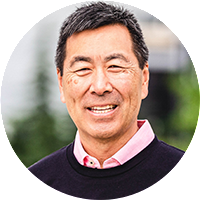 The FIFA World Cup is the world's largest sporting event, 14% bigger than the Olympics in audience size and six times the size of the Super Bowl's 175 million viewers. And it's coming to Seattle in 2026 as the city becomes one of 16 North American locations chosen to host several games. How do cities pitch for sporting events of this size? What is the economic impact of occasions like this? Peter Tomozawa, CEO of SEAFWC26, the organization tasked with preparing Seattle for the 2026 World Cup, talks about this and more in this episode of The Leadership Playbook.
The FIFA World Cup is the world's largest sporting event, 14% bigger than the Olympics in audience size and six times the size of the Super Bowl's 175 million viewers. And it's coming to Seattle in 2026 as the city becomes one of 16 North American locations chosen to host several games. How do cities pitch for sporting events of this size? What is the economic impact of occasions like this? Peter Tomozawa, CEO of SEAFWC26, the organization tasked with preparing Seattle for the 2026 World Cup, talks about this and more in this episode of The Leadership Playbook.
Fall 2022 Episodes
Jim Weber, Chairman and CEO, Brooks Running
October 13, 2022
Leading with Purpose
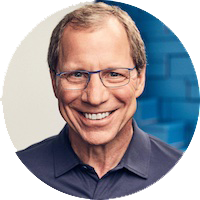 In his book 'Running with Purpose: How Brooks Outpaced Goliath Competitors to Lead the Pack', Brooks Running Company CEO Jim Weber shares how he led a passionate, committed team to transform a failing business into a billion-dollar brand in the ultra-competitive global running market. In this recording of his live panel at the Albers Executive Speaker Series, he talks about his leadership principles, what he would tell his 20-year-old self and how, after years of uncertainty, Brooks became a $1 billion athletics powerhouse.
In his book 'Running with Purpose: How Brooks Outpaced Goliath Competitors to Lead the Pack', Brooks Running Company CEO Jim Weber shares how he led a passionate, committed team to transform a failing business into a billion-dollar brand in the ultra-competitive global running market. In this recording of his live panel at the Albers Executive Speaker Series, he talks about his leadership principles, what he would tell his 20-year-old self and how, after years of uncertainty, Brooks became a $1 billion athletics powerhouse.
Spring 2022 Episodes
Laura Clise, Founder and CEO, Intentionalist
May 12, 2022
Economic Allyship: Bridging the Gap Between Intention and Action
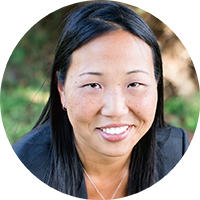 The magnitude of the challenges we face calls for big thinking, bold leadership, and the willingness to dismantle systems and cultures that have gone unopposed for too long. In this recording of Laura Clise's panel in May 2022, she asks if the moment also calls for thinking small -- specifically what we can all do be part of the solution to economic inequality, racial injustice, and the fraying of our social fabric. Clise says what we can do is simply be more intentional about everyday decisions about where we eat, drink, and shop. Economic allyship, she says, is a powerful way to translate our good intentions into action that contributes to the cultural change necessary for a more connected, inclusive, and equitable world.
The magnitude of the challenges we face calls for big thinking, bold leadership, and the willingness to dismantle systems and cultures that have gone unopposed for too long. In this recording of Laura Clise's panel in May 2022, she asks if the moment also calls for thinking small -- specifically what we can all do be part of the solution to economic inequality, racial injustice, and the fraying of our social fabric. Clise says what we can do is simply be more intentional about everyday decisions about where we eat, drink, and shop. Economic allyship, she says, is a powerful way to translate our good intentions into action that contributes to the cultural change necessary for a more connected, inclusive, and equitable world.
Catie Griggs, President of Business Operations, Seattle Mariners
April 27, 2022
The New Return on Experience (ROE): Redefining the Fan Experience
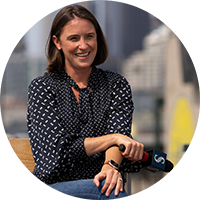 How is the highest-ranking female business executive in baseball looking to revitalize one of Seattle's most loved sports franchises? Catie Griggs, President of Business Operations for the Seattle Mariners, joined the Albers Executive Speaker Series in April to talk about her vision. For her, it boils down to a renewed focus on the fan experience that's grounded on three principles: winning their games, creating a truly inclusive and welcoming experience to all, and offering outstanding value. Listen to the recording of Griggs' live panel where she talks about all this and her mantra, 'Doesn't Matter; Get Better'.
How is the highest-ranking female business executive in baseball looking to revitalize one of Seattle's most loved sports franchises? Catie Griggs, President of Business Operations for the Seattle Mariners, joined the Albers Executive Speaker Series in April to talk about her vision. For her, it boils down to a renewed focus on the fan experience that's grounded on three principles: winning their games, creating a truly inclusive and welcoming experience to all, and offering outstanding value. Listen to the recording of Griggs' live panel where she talks about all this and her mantra, 'Doesn't Matter; Get Better'.
Harriet B. Stephenson
February 24, 2022
All Business From Day One
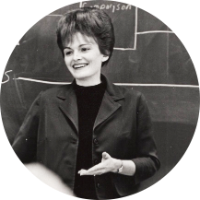 For Albers’ 75th year, Dean Joe Phillips sat down with the iconic Harriet Stephenson, a business professor who taught at Albers from 1967 to 2014. Stephenson, one of the few female business PhDs in her time, founded what is now the Innovation & Entrepreneurship Center (IEC) and won many awards for her teaching and her work in social entrepreneurship and small business management. Phillips asked her how she first got interested in business (leasing her grandfather’s swimming pool in Walla Walla), what it was like to be a woman in business in the 60s (“business was pretty much men”), and the origins of Albers’ triple bottom line, among others. When asked how she felt about the IEC naming their business competition after her, Stephenson said with much satisfaction, “I gotta say I like it.” If you studied under Harriet or are just interested in the woman after whom our business plan competition is named, listen to understand why she’s a living legend.
For Albers’ 75th year, Dean Joe Phillips sat down with the iconic Harriet Stephenson, a business professor who taught at Albers from 1967 to 2014. Stephenson, one of the few female business PhDs in her time, founded what is now the Innovation & Entrepreneurship Center (IEC) and won many awards for her teaching and her work in social entrepreneurship and small business management. Phillips asked her how she first got interested in business (leasing her grandfather’s swimming pool in Walla Walla), what it was like to be a woman in business in the 60s (“business was pretty much men”), and the origins of Albers’ triple bottom line, among others. When asked how she felt about the IEC naming their business competition after her, Stephenson said with much satisfaction, “I gotta say I like it.” If you studied under Harriet or are just interested in the woman after whom our business plan competition is named, listen to understand why she’s a living legend.
Fall 2021 Episodes
Mary E. Kipp, CEO, Puget Sound Energy
November 18, 2021
Beyond Net Zero Carbon by 2045
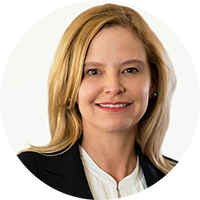 In this recording of a November 2021 live panel, Puget Sound Energy CEO Mary E. Kipp talked about the dual utility's journey towards its goal of net zero carbon emissions, including natural gas sold to customers, by 2045. A big challenge, as Kipp explained, is 'how do you optimize existing assets to make sure you decarbonize as quickly as you can and not leave anyone behind?' To meet its goal, PSE has upped transparency, asked for more input from diverse communities, and focused on partnerships in a big way. 'This climate change thing is bigger than all of us,' Kipp said. 'So let's get together and do it in a collaborative, respectful fashion.'
In this recording of a November 2021 live panel, Puget Sound Energy CEO Mary E. Kipp talked about the dual utility's journey towards its goal of net zero carbon emissions, including natural gas sold to customers, by 2045. A big challenge, as Kipp explained, is 'how do you optimize existing assets to make sure you decarbonize as quickly as you can and not leave anyone behind?' To meet its goal, PSE has upped transparency, asked for more input from diverse communities, and focused on partnerships in a big way. 'This climate change thing is bigger than all of us,' Kipp said. 'So let's get together and do it in a collaborative, respectful fashion.'
Eric Artz, President & CEO, REI Co-op
October 13, 2021
Go Do. Go Try. Go Challenge.
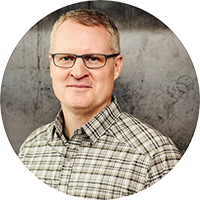 REI Co-op President & CEO Eric Artz emphasized values and impact in this recording of the first live Albers Executive Speaker Series panel in 18 months. With an ambitious goal to grow membership from 20 million to 50 million, Artz said their aspiration is to grow a community of 50 million who are engaged and fighting for pressing societal issues we face today such as climate change and racial equity. He also spoke about how REI is handling supply chain challenges, how he built a powerful company culture, and the advice he’d give aspiring leaders. ‘Challenge yourself. Go do. Go try. When you get comfortable, force yourself to get uncomfortable, because those are the moments that you’re growing.’
REI Co-op President & CEO Eric Artz emphasized values and impact in this recording of the first live Albers Executive Speaker Series panel in 18 months. With an ambitious goal to grow membership from 20 million to 50 million, Artz said their aspiration is to grow a community of 50 million who are engaged and fighting for pressing societal issues we face today such as climate change and racial equity. He also spoke about how REI is handling supply chain challenges, how he built a powerful company culture, and the advice he’d give aspiring leaders. ‘Challenge yourself. Go do. Go try. When you get comfortable, force yourself to get uncomfortable, because those are the moments that you’re growing.’
Spring 2021 Episodes
Father Steve Sundborg, President, Seattle University
May 19, 2021
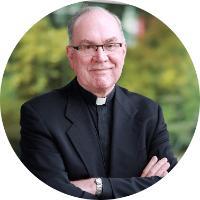 Looking Back on 24 Years of Leadership
Looking Back on 24 Years of Leadership
In this special livestream episode, a panel of three former Seattle University Board of Trustees Chairs – Phyllis Campbell, Jim Sinegal, and Steve Hooper – ask outgoing SU President Father Steve Sundborg about his leadership insights, the most challenging moments in the 24 years he led SU, his post-retirement plans, and how he sees the university in the future. The panel also announces the creation of the Stephen V. Sundborg, SJ Fund for Community Business Impact to support community outreach programs such as the Innovation & Entrepreneurship Center's RAMP-up program.
Christine Gregoire, Governor of Washington 2005-2013 and CEO, Challenge Seattle
May 5, 2021
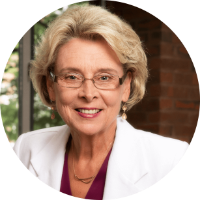 Learning is a Continuous Journey
Learning is a Continuous Journey
Challenge Seattle CEO and former Washington Governor Christine Gregoire talks to Albers Dean Joe Phillips about her experience navigating a recession, the initiatives she is spearheading in response to last year’s racial unrest, and her advice for students graduating in a pandemic. The common thread throughout the episode is being open to learning throughout one’s lifetime. ‘Whatever you end up doing, don’t assume that’s your lifelong job,’ she says in this episode. ‘Let the doors open; let the sky be the limit.’
Brad Tilden, Chairman, Alaska Air Group
April 21, 2021
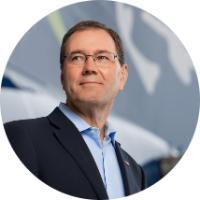 Breaking Through the Clouds and Finding the Blue Sky
Breaking Through the Clouds and Finding the Blue Sky
Alaska Air Group chairman Brad Tilden, who retired as CEO in March, reflects on the challenges, triumphs, and lessons learned in the nine years he led the Seattle-based airline. The self-confessed airline geek who ‘loves the smell of jet fuel in the morning’ talks about transcending the pandemic, what he is most proud of during his time as Alaska CEO, and how to spot the right talent for the airline industry. Like him, they all ‘believe in the magic of flight’.
Craig Dawson, President and CEO, Retail Lockbox and Chair, Washington Roundtable
April 7, 2021
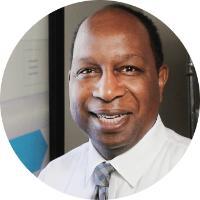 The Path to Achievement Starts with Building Your Runway
The Path to Achievement Starts with Building Your Runway
Retail Lockbox President and CEO Craig Dawson knew he wanted to go into business when he was four years old. In this episode, he talks about how he is leveraging his experience as a Black business owner and leader in heading up the Washington Roundtable and Washington Employers for Racial Equity, how he feels strongly about championing Black business, and the advice he would give to young professionals in the wake of the pandemic. ‘When I graduated, I thought I was old,’ he recounts. ‘What I didn’t realize was how much runway I had.’
Marilyn Gist, Thought Leader and Author of The Extraordinary Power of Leader Humility
March 24, 2021
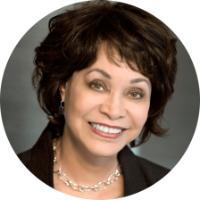 Leader Humility and Its Surprising Role in Organizational Success
Leader Humility and Its Surprising Role in Organizational Success
Seattle University Emeritus Professor, thought leader, and author Marilyn Gist talks about her seminal work on leading with humility and how it underpins success in the best performing organizations. Gist defines leader humility as 'feeling and displaying deep regard for others' dignity'. Her research shows that contrary to the perception that it denotes weakness, leader humility builds a strong culture and incentivizes members to bring their best selves to the table.
Jessie Woolley-Wilson, President, CEO and Board Chair, DreamBox Learning
March 10, 2021
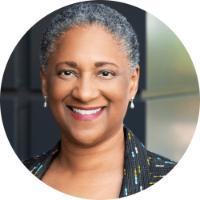 Seeking the Spark in Everything
Seeking the Spark in Everything
‘Talent exists everywhere, but opportunity does not.’ When the pandemic hit, K-8 digital math program DreamBox Learning opened its platform for free to schools and parents, providing a much-needed resource during trying times. President, CEO and Board Chair Jessie Woolley-Wilson talks about COVID being a pivotal moment for DreamBox, the future of education technology, and the challenges she has faced as a renowned Black female leader in the historically male-dominated tech world.
Fall 2020 Episodes
John Burke, President, Trek Bikes
October 26, 2020
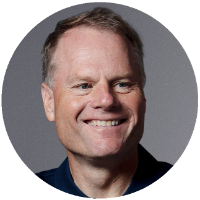
Performance, Product, and People
As the pandemic deepened across the world, Trek Bikes saw a surge in bicycle sales, especially among new riders. CEO John Burke talks about how this trend has impacted their business, the opportunities presented by e-bikes and new technology, and how to thrive in a family-owned business. He also elaborates on why he wrote Presidential Playbook 2020 which has 16 detailed solutions to America's biggest challenges.
Amy Hood, CFO, Microsoft
November 2, 2020
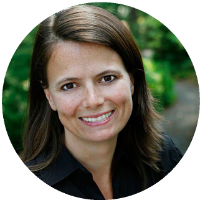
What It Means to Be a Leader
Microsoft CFO Amy Hood sat down virtually with Dean Joe Phillips to discuss her leadership philosophy, how disruptive technologies like blockchain are changing finance, and what advice she would give to recent graduates, particularly in a pandemic period.
Throwback: Tod Leiweke, CEO and Team President, Seattle Kraken
November 9, 2020
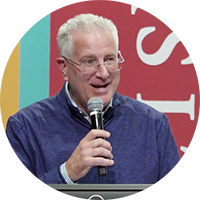 Bringing Hockey Back to the Northwest
Bringing Hockey Back to the Northwest
In October 2019, Seattle Kraken CEO Tod Leiweke spoke to a packed Pigott Auditorium about building a successful sports franchise, reviving the Key Arena (now known as Climate Pledge Arena), and what brought him back to Seattle: ‘At the end of the day, you have to believe in the fans’. Followers of hockey and the business of sport will enjoy this throwback episode where Leiweke enthralls and inspires an animated audience.
Sunny Gupta, Co-founder and CEO, Apptio
November 16, 2020
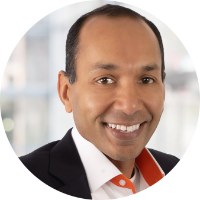
How Diversity is Building a Better Apptio
Embracing diversity in everything from hiring practices to choosing office locations has had multiple benefits for SaaS solutions provider Apptio. Co-founder and CEO Sunny Gupta explains how 'opening our aperture' has not only strengthened their culture, it also enabled the Bellevue-based firm to recover faster from the initial impact of COVID-19 on their business.
Throwback: Panel Discussion featuring former Boeing Commercial Airplane CEOs Frank Shrontz, Alan Mulally, and Ray Conner
November 23, 2020
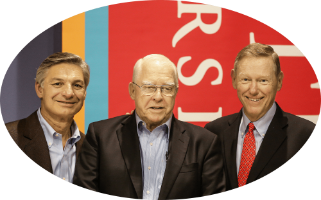 Leadership and Culture
Leadership and Culture
For the first time ever, three former CEOs from Boeing were on a panel discussing their experiences in leadership and culture during their executive tenures. The Albers Executive Speaker Series hosted (from left) Ray Conner, Frank Shrontz, and Alan Mulally in October 2018, asking them a host of questions from the challenges they faced in running Boeing to what advice they’d give students aspiring to senior leadership.
Throwback: Raj Singh, CEO, Accolade
November 30, 2020
 Wanted: Contrarians, Disruptors, and Do-gooders
Wanted: Contrarians, Disruptors, and Do-gooders
‘Seek businesses that are built on principle or go and build one of your own.’ In January 2020, the Albers Executive Speaker Series hosted Accolade CEO Rajeev Singh, one of the Pacific Northwest’s most successful entrepreneurs. During his talk, he shared his guidepost for his every decision, other highly successful innovators who embrace beliefs that contradict the current orthodoxy, and how to recognize and master those moments that will change your course forever.
The Leadership Playbook podcast production and music are by Seattle-based Alvarez Audio.